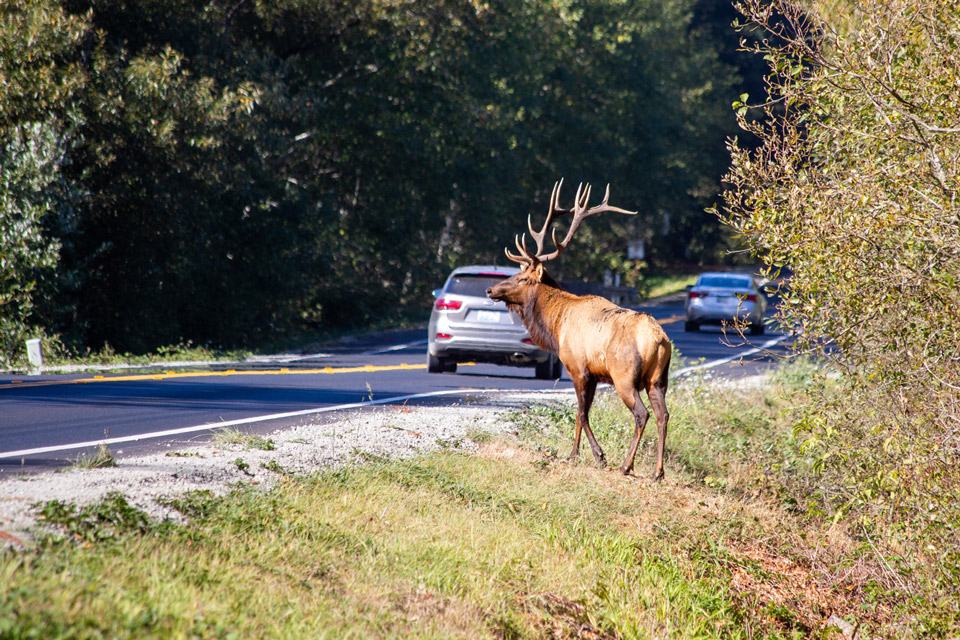
September 22, 2020 - Every autumn, as Daylight Saving Time concludes, the number of vehicle-wildlife collisions on California roadways increases. As drivers adjust to less daylight during the evening commute during the first week of November, the California Department of Fish and Wildlife (CDFW) and Caltrans issue a reminder to be alert and aware of animals on the roads and highways. This year, Watch Out for Wildlife Week also falls during a historic fire season, adding additional urgency to the message.
This is the time of year that deer, elk, bears and other animals are typically on the move for migration, mating or foraging – but wildlife has 3 million fewer acres of forest to call home due to numerous fires around the state. It’s even more likely that displaced animals will be using or crossing roads and coming near traffic.
“Currently, people may be seeing diverse species of wildlife displaced due to fire,” said CDFW Conflict Programs Coordinator Vicky Monroe. “Drivers should be especially cautious driving in areas with known habitat disturbance or fire damage and be aware of wildlife that may be active near roads, such as deer, black bears, bobcats, mountain lions, birds of prey and more.”
Vehicle collisions involving wildlife can be both dangerous and costly. According to the California Highway Patrol, in 2019, three people died and 390 people were injured in 2,204 collisions with animals on state, county and local roadways throughout California. The UC Davis Road Ecology Center estimates the total annual cost of animal-vehicle conflicts in California to be at least $307 million in 2018.
“Safety remains our foremost priority,” said Caltrans Director Toks Omishakin. “This includes doing our part to alert motorists of potential environmental hazards by installing flashing animal crossing warning signs and building larger culverts for safer wildlife passage over and under our roadways.”
Standard driving safety tips carry even more significance in light of habitat loss to the 2020 wildfires. These include:
- Be extra alert when driving near areas wildlife frequent, such as streams and rivers, and reduce your speed especially around curves.
- Don’t text and drive! Leave your phone alone; it can wait.
- Pay extra attention driving during the morning and evening hours when wildlife are often most active.
- If you see an animal on or near the road, know that others may be following.
- Don’t litter. Trash and food odors can attract animals to roadways.
- Pay attention to road shoulders. Look for movement or reflecting eyes. Slow down and honk your horn if you see an animal on or near the road.
- Respect wildlife. California is their home too.
For any additional information on Watch out for Wildlife Week, or the messaging for California drivers, please contact either the California Department of Fish and Wildlife or Caltrans.
Source: CDFW








